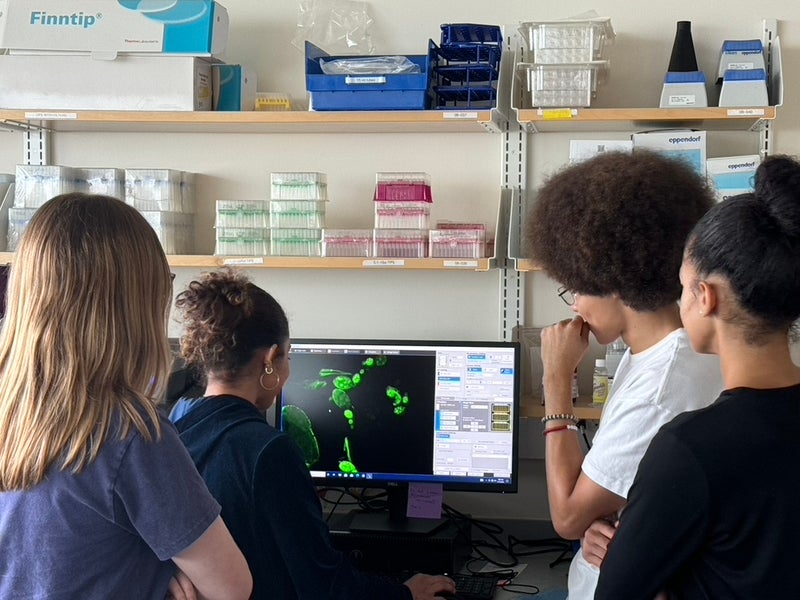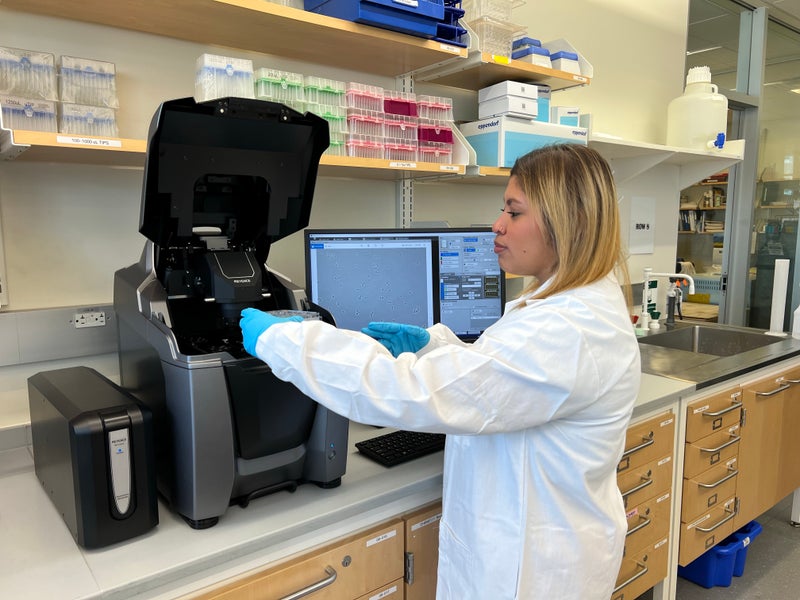The Biology department at Emmanuel College has historically offered robust opportunities for students to get involved in research on campus throughout the summer. What’s unique about this research group – the Experimental Model Research Groups at Emmanuel (eMRGE) – is the collaborative community between participating students and faculty members.
Emmanuel College’s summer research program offers students and faculty alike the distinct opportunity to collaborate on scholarly work. This summer, 56 students across 11 disciplines and all five Academic Schools are conducting research with faculty. Through this series, we will highlight student and faculty research going on throughout the summer, which will conclude with a special poster session in the fall.
At a primarily undergraduate institution, it is rare to have dedicated research programs on the variety of model organisms that are utilized at Emmanuel – worms, flies, bacteria, bacteriophage and yeast, said Dean of the School of Science and Health Dr. Pádraig Deighan. In the eMRGE group, comprised of faculty mentors Drs. Janel Cabrera, Vincent Cannataro, Pádraig Deighan, Jason Kuehner, Natalie Karagodsky and Anupama Seshan, the research of 20 students each summer revolves around these organisms.
What’s equally rare on campus this summer is that student researchers from each project have been sharing their progress, giving each other advice and learning from more than just their own faculty mentor.
The eMRGE group maintains a tradition of frequent lunch presentations, during which students present their research findings not only to their mentor, but to their peers and other mentors in the biology group. The presenting and feedback process, or inclusive mentoring, is a unique piece of what makes the eMRGE group and doing biology-related research at Emmanuel College especially beneficial for participating undergraduates.
See the overview of each research project and hear more from the students about their research journeys this summer below.











